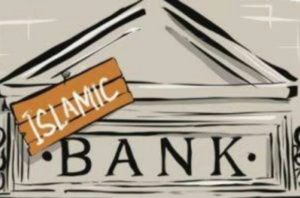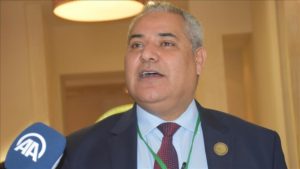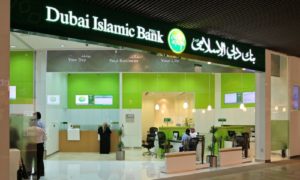Jakarta, MINA – In order to develop sharia economy and finance in Indonesia, particularly in the field of sharia capital markets, the establishment of an Islamic Investment Bank (IIB) in Indonesia is needed.
IIB emphasizes the concept of investment banks that run the principles of their business in sharia.
Unlike commercial banks which collect public funds and channel them back to the community, IIB is more focused on raising funds from specific investors, such as companies, governments and investment funds to be channeled in the form of capital to a business sector.
The distribution of IIB places more emphasis on direct capital to a company or through an intermediary fund manager through the concept of fund management.
Also Read: Indonesian Navy Prepares Three Hospital Ships for Humanitarian Mission in Gaza
Profits from dividends, consultancy fees and services, as well as from the sale of equity assets to other investors.
In terms of distribution, IIB generally focuses on equity and project financing. In addition, IIB also offers consulting and research services that serve to provide input and in-depth analysis to investors or other third parties on a business transaction and investment decision such as a merger, acquisition, initial public offering, private offering, restructuring, and others.
Then, for these services, IIB will get a ujrah or fee.
Senior Researcher of the Indonesian Deposit Insurance Corporation (LPS) Ronald Rulindo explained that currently Islamic banking in Indonesia is relatively small in size, difficult to become large. That is because the projects they handle are relatively small, according to a KNEKS press statement received by MINA, Tuesday.
Also Read: Floods Spread in North Aceh, Eight Districts Submerged
In supporting the Islamic finance ecosystem, Head of the Sharia Financial Market Deepening Division of the National Committee for Islamic Economics and Finance (KNEKS) Intan Natasha Putri said the IIB would focus on developing and deepening the Islamic capital market and supporting the overall Islamic financial ecosystem.
Meanwhile, Portfolio Manager, Public-Private Partnership of Islamic Development Bank (IDB) Muhammad Imaduddin said that IIB funding sources could be through several investors from the Middle East, Islamic Cooperation Organization (OIC) countries that have a focus on developing IIB, as well as from several general investor.
“However, in the midst of the Covid-19 pandemic, the tendency of investors to be in the wait and see stage for the next 1-2 years until the state of recovery in terms of health and economy,” said Imaduddin.
Regarding the role of IDB for IIB, Imaduddin explained, currently besides functioning as a capital fund provider, IDB is now more focused as a catalyst to invite other investors through the concept of resource mobilization to develop member countries including Indonesia, including in the development of Islamic financial institutions. (T/RE1/P2)
Also Read: Chinese Investment in Central Java Surges; Fujian Proposes Direct Semarang–Fuzhou Flight
Mi’raj News Agency (MINA)


































 Mina Indonesia
Mina Indonesia Mina Arabic
Mina Arabic